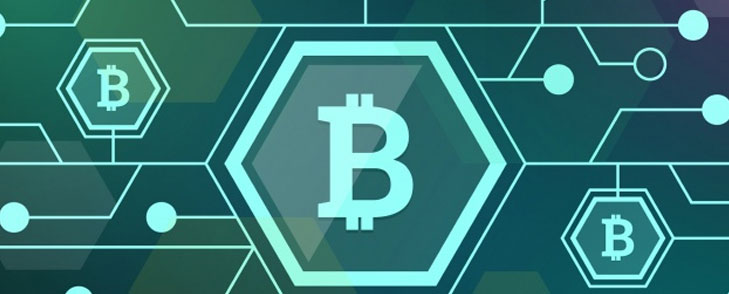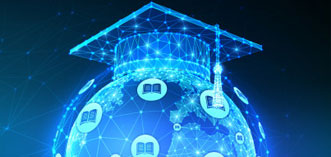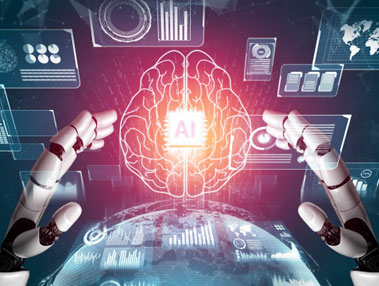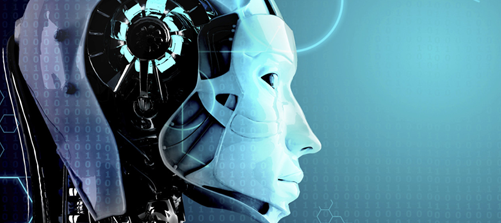Rightly said, 'Tomorrow belongs to those who prepare for it today', the education sector is foreseeing a huge transformation for the better future of students.
It is escalating to make life easier for students and teachers by promoting engagement, collaborations, communication, and efficiency. A recent survey reveals, 83% of teachers are optimistic about using technology to enhance their capabilities and over $8trillion are estimated to be invested in the global education industry by 2025, out of which $342 billion is on digital spending.
However, tech involvement does not necessarily guarantee the best education, the learning process is hampered by the disruption of technology;
also, the incidences of plagiarism and cheating have increased, which affects the critical thinking abilities of the student; however, technology when used in the right way, will open numerous doors in the future for both educators and learners.
Technology is introducing tech-based solutions to address the issue of teacher burnout and student's anxiety. It offers numerous opportunities for getting actively involved in the learning experience.
Technology accommodates the needs of different types of learners like visual, auditory, reading/writing, and kinesthetic, with the help of various learning technologies, thereby motivating inclusive and personalized learning.
Emerging Trends in the Education Industry
Modern technologies have changed all aspects of our lives and the education industry is not an exception to it. Edtech is tackling various student's concerns, from easily adaptable classroom management tools to educational apps. Edtech is a rapidly growing market with key emerging trends in education like:

Gaming technology making the learning fun
Looking at the obsession of students towards gaming, developers have come up with the gamification approach that allows deep learning through video game design and other gaming elements that allow the students to analyze their performance with the help of a data analytics algorithm.
Online resources and assessments addressing distant learning

The need for personalized learning, collaborations, and innovative teaching methods have given rise to online resources and Massive Open Online Courses (MOOCs) that provide the learning opportunity to all irrespective of their location.
Mobile technology a new learning tool
Mobile technology is changing the way in which students are learning in different ways at different places and times. Students can learn in their preferable setup, which not only makes learning fun but also helps them to concentrate. With the help of IoT, universities can analyze their use and impact on learners.
Data Management and Predictive Analytics helping teachers
The assessment of student's performance and developing action plans has become easier with the help of data management. The teachers can now focus on providing personalized training to students with the help of predictive analytics thereby avoiding the risk of student drop-out.
Blockchain, digital credentials, and Hybrid Integration Platforms(HIP) assisting universities

Blockchain technology is assisting universities in managing exams efficiently, verifying students' credentials, verifying certificates, etc through its distributed ledger system. Also, the HIP helps to leverage the best in-the-cloud and on-premises integration approach to develop next-gen infrastructure.
Robotic Process Automation (RPA), Augmented Reality(AR), and Virtual Reality (VR) enhancing knowledge retention
The classroom-based lectures are the lowest when it comes to knowledge retention. There is a scientific reason behind it when the learners see something in action, the knowledge is retained in a better way; thus, RPA and AR/VR allows its users to experience things with the help of robots and 3D glasses. Educators are increasingly turning towards smart campuses to create immersive user experiences.
Artificial Intelligence (AI) the impacting education ecosystem

The all-new learning assistants are making use of AI, ML, and natural language processing that helps to deliver personalized learning experience with one-to-one attention on learners.
Key Challenges in the Educational Industry
The future of the Edtech market is not without a speed bump; however, given the right speed may help to cross it swiftly. With challenges comes the opportunity of growth, so instead of discouraging the IT model, one should increase the effort to integrate and capitalize on it. The key challenges looming the Edtech space are:
Low internet connectivity, power failure, and high connectivity cost is ruining the game
Although internet penetration is increasing gradually, the connectivity, power failure, and higher connectivity cost issue still persists which is making it difficult to impart education at student's pace and comfort, especially in remote areas. The uninterrupted broadband connection and Wi-Fi facility on campuses may help to overcome this challenge.
Too many cooks spoil the broth
The competitive Edtech industry is offering a wide range of solutions, which is making it difficult for parents to choose from. The clarity on the same is difficult to come unless huge research is done. Also, for educators to make the choice of the service provider is a cumbersome task.
Big-Data related ethical policy concerns
Big-data no doubt have positive learning outcomes; however, the ethics of maintaining privacy seems to be discouraged, since the access of student's data for research purposes is increasingly becoming a matter of concern amongst many parents.
Rising education cost crashing the dreams
The rising education cost is making parents rethink. Many institutions are beyond the reach of the common man. Besides this, the privatization of higher education has led to a rise in profit-hungry businessmen. With the government spending less money on higher education, the universities have to seek an alternative source of funding, which is increasing the burden on parents.
Inappropriate professional training on technology is a hurdle
Technology being dynamic, requires timely training to staff and teachers. The lack of preparatory training will put educators in a technological dilemma, who further will not be able to support the students and the very purpose of using technology will fail.
Poor Institutional framework and implementation capacity becoming a significant problem
When technology integration is not backed by a robust institutional framework and implementation capacities, it becomes difficult to ripe the benefits and leads to failure of the IT model in the educational ecosystem. Well designed administrative and information technology capacities will help to mitigate this challenge.
Education creates future capabilities and lifelong learning experiences, which makes it very essential to plan for the future of work and life. The development of technology in the education sector is still seeing growth prospects and there is a substantial scope for improvement. Research shows it can change the world in unimaginable ways. The early initiatives of technological integration have shown improved learning outcomes. The personalized solutions address individual learner's needs and help teachers in customizing the teaching process thereby showing tremendous potential to transform the industry. Despite some barriers like increased screen time and insecurity amongst educators the implementation and integration of technological advancements into education are unavoidable and the cost of procrastination is way too high. Any growth requires the temporary loss of security. Thus, technology will not replace great teachers but can transform the education sector when in the hands of great teachers.
Integrating technology seamlessly to facilitate educational goals
Related Articles
Achieving Success Through Innovative Solutions
Transforming client businesses through state-of-the-art creativ





